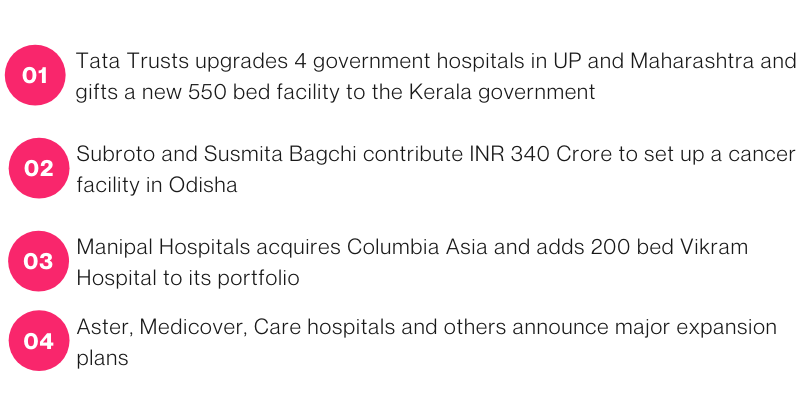
The pandemic has put a tremendous and potentially unsustainable load on India’s existing health infrastructure. During the second wave, the number of daily new cases surged to over 3 lakhs, with an increased hospitalization rate.

Gaps in India’s existing health infrastructure (beds, ICUs, ventilators, oxygen) were exposed. Citizens have realized the importance of healthcare access and availability. For profit and not for profit players have intensified their efforts to pursue expansion and address the need.
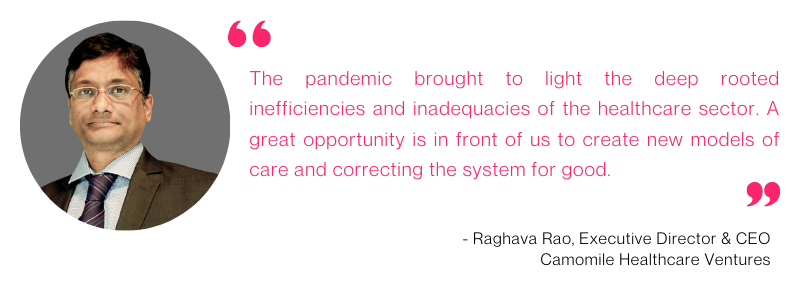
In the last 10 years, India has expanded tremendously in hospitals and healthcare services. The hospital industry continues to grow at a CAGR of 17%. However, even with this impressive growth rate, the industry has a long way to enable accessible and quality healthcare for the entire population.
India has only 0.5 beds per 1000 population which is significantly lower when compared to developing countries like China, Indonesia and South Africa. A massive gap of ~ 2 million beds exists. (Source: Human development index 2020)
Even if India established 1,00,000 beds every year, it would take 20 or so years to bridge this large need supply gap (which is only set to go up in the coming years). This would also require an investment of approximately Rs. 1,00,000 cr per year. Herein lies the mammoth task of setting up high-quality healthcare infrastructure with a limited amount of resources.

Planning and establishing a hospital is no easy task and requires a significantly higher amount of time and resources , as compared to any other project like a 5-star hotel, school, college or commercial complex. Any piece of land/building cannot just be turned into a hospital; a medical facility is a purpose-built structure.
There is a lack of understanding about the activities and processes involved in setting up a hospital. Hospital owners inadvertently tend to oversimplify setting up a hospital or healthcare facility.
Take, for example, a business entity that wishes to establish a new hospital; Most of them assume that the requirements are simple- Buy land for construction or lease a building, buy or acquire all the required medical equipment and hire a set of doctors and staff.
Planning and setting up a hospital comprises a much larger number of steps, including detailed plans, executing complex activities and managing multiple parties while ensuring they seamlessly integrate to give the desired end product- a quality healthcare facility that operates efficiently.
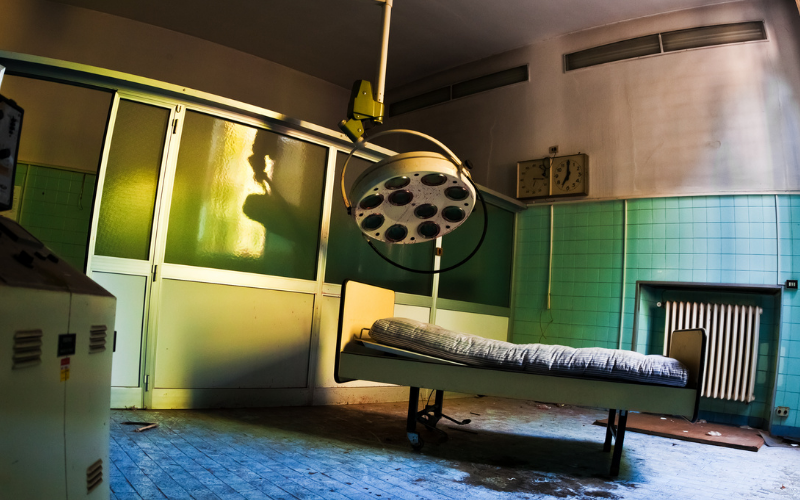
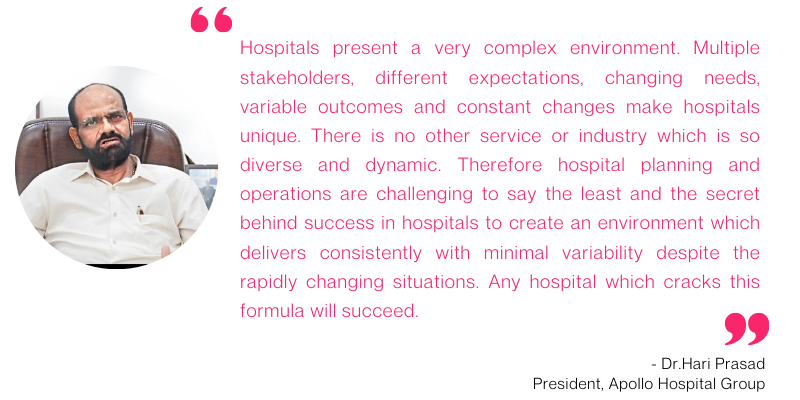
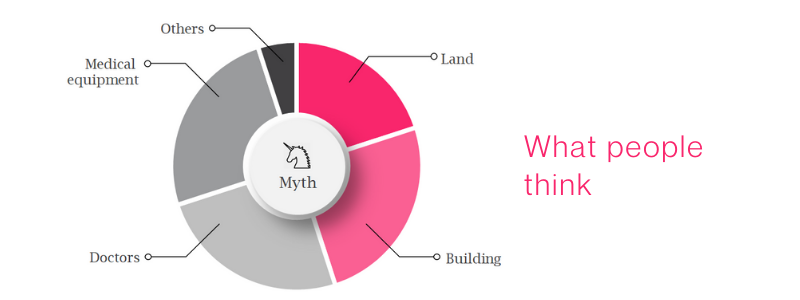
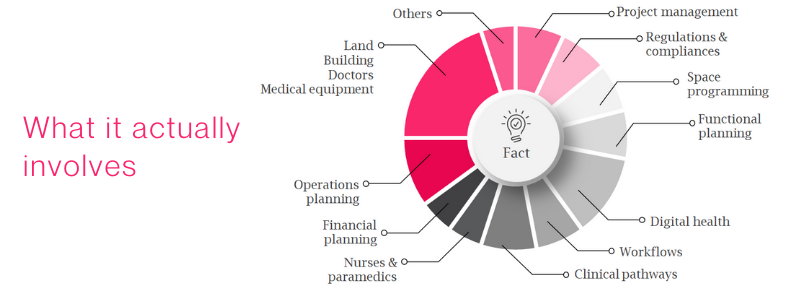
The success and quality of care provided at a healthcare facility depends not only on how experienced its doctors are or how advanced its equipment is but also on the healthcare facility itself. There is a growing need for expertise to conceptualize and set up a hospital or healthcare facility from scratch, ensure efficient operations, management and achieve international standard clinical practices.
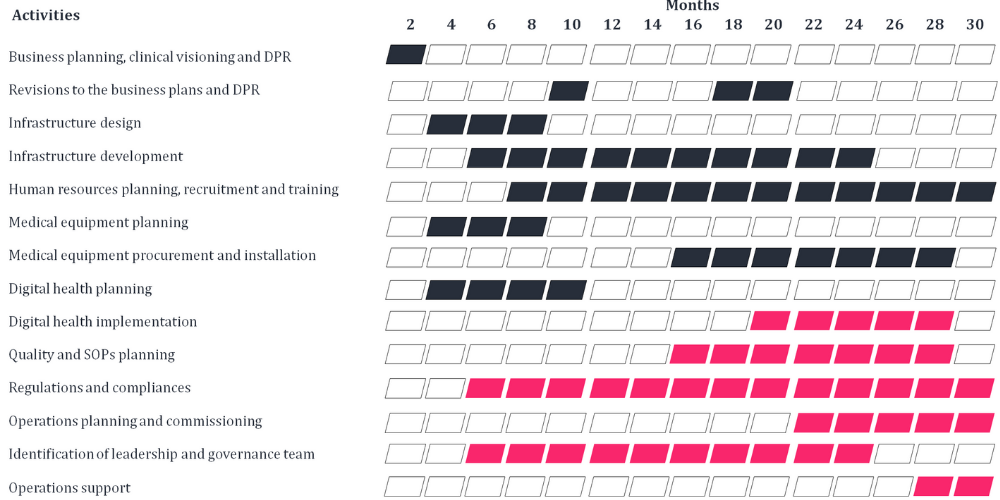
The first stage of building a hospital is indeed the most important, i.e., the planning phase. It needs a highly structured approach- preliminary research on the market & competition to arrive at the best service mix & best facility type. Different hospitals- single speciality, multispeciality, emergency centres, teaching hospitals etc., vary in their requirements.

This is followed by analysing and estimating resource requirements (capital- land, space & equipment, workforce- medical and non-medical) and planning according to the budget. Planning the IT and technology requirements is also crucial, as in today’s context, a hospital needs to be digitally enabled with provisions for virtual care to its patients.
The planning phase also includes facility design and infrastructure, forecasting the hospital’s performance based on current trends, developing timelines for the work tasks and setting contingency plans for future expansion. There is a lot of project management involved in executing all the various activities and integrating them. It is essential to ensure that the government’s mandatory regulations and compliances are being met. Hospitals need to be accredited by the NABH.
The next step would be strategizing workflows and operational planning to achieve maximum efficiency. Management frameworks must be developed to optimize the hospitals’ various departments and staff.
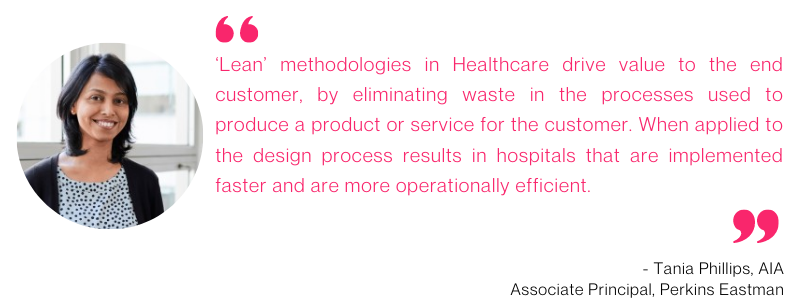
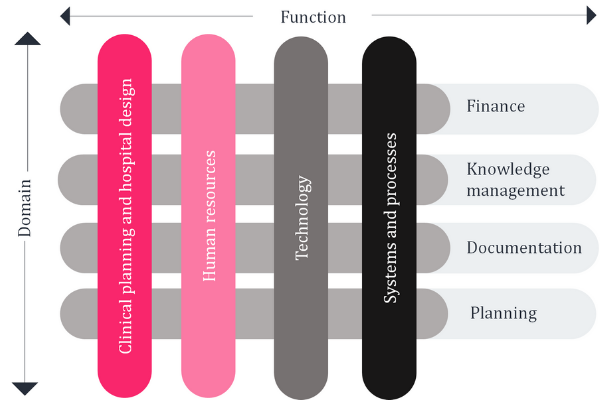
A multi-functional team is required to manage the scope of work, which has capabilities in various domains like clinical planning, medical equipment, technology, operations, etc. Assembling this multi-functional team is key to a successful project.
Every aspect that determines a hospital’s quality of care and its patient’s satisfaction would need to be carefully identified, planned for, and implemented. This shows the importance of having an expert team to guide, assess, plan, and execute all the activities involved in setting up a hospital. This would ensure that the hospital functions optimally and provides quality care and treatment to its patients.
A well-planned and operated hospital has the potential to generate INR 90 lakhs to 1.4 crores per bed per year. The average breakeven period shall be 18-20 months and the achievable EBDITA margin shall be 18-25%. With increased awareness about healthcare needs among consumers and a major short supply of quality healthcare infrastructure, hospitals shall remain an attractive area for investment in the years to come.
Camomile Healthcare is a leading boutique healthcare advisory organization specializing in planning and commissioning hospitals in India and abroad. Our team consists of senior industry professionals who have been involved with creating some of the largest healthcare businesses and hospitals.
We have a comprehensive approach to planning and commissioning hospitals. We use Evidence-based design measures, follow international standards and best practices, and provide end to end services to streamline projects from planning stage to commissioning.
Some of our past projects include,

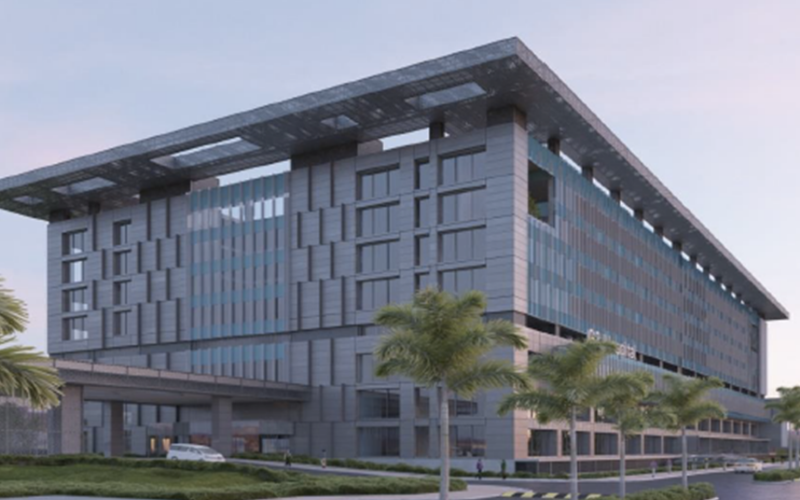
If you would like to discuss the insights of this article and how we can help you with your plans, you may contact-
Mr Raghava Rao, CEO and Executive Director,
Camomile Healthcare Ventures Pvt Limited.
Email: raghava@camomilehealthcare.com